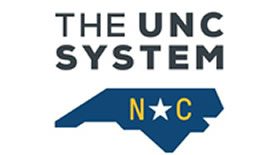UNC System, U.S. Army partner to spur student interest in STEM fields

Several thousand U.S. Army engineers and scientists are nearing retirement age. The Army will develop and attract the talent it needs to fill those vacancies through a new partnership with the University of North Carolina System.
On June 18, U.S. Army Combat Capabilities Development Command’s Army Research Laboratory, the Army’s corporate research laboratory also known as ARL, formally signed an educational partnership agreement (EPA) with the UNC System. The purpose of this initiative is to stimulate student interest in STEM (science, technology, engineering and math disciplines), particularly in areas of relevance to the Department of Defense’s mission.
The EPA is a master agreement designed to facilitate new partnerships between the Army and individual UNC System institutions. It allows institutions, colleges and even departments, to expedite their own potentially groundbreaking EPAs with ARL.
“By streamlining the approval process for education partnership agreements at individual institutions, this agreement will open up collaboration opportunities and a pipeline of new ideas,” said ARL Director Philip Perconti. “We will be able to get innovative coursework and research opportunities up and running more quickly and reach more students, attract better talent and ultimately identify cutting-edge solutions to the military’s challenges.”
The partnership model will help the U.S. Army to accomplish three central objectives: to encourage and enhance the study of STEM disciplines; to provide technical assistance that will enhance STEM teaching throughout in the UNC System; and to leverage regional collaborative efforts in support of STEM educational goals that will benefit students, government, industry and nonprofit organizations.
In pursuit of these objectives, the EPA encourages partnering institutions to establish student and faculty research opportunities at ARL. By providing hands-on, experiential learning opportunities in state-of-the-art labs, these exchanges will help STEM students and researchers apply basic academic skills and theoretical concepts to realistic contemporary applications.
ARL will help partnering institutions develop and teach new courses. N.C. State University’s proposed “Hacking for Defense” course will serve as a template. In this course, military customers will bring real-world battlefield challenges to teams comprising engineers, business, and management students. These joint teams will work together to keep warfighters at the forefront of technology. This proposed course exemplifies how the EPA will connect the military community with faculty and students, who will earn college credit while working to find solutions to security challenges.
Finally, through the EPA, UNC System institutions will be able to secure material and intellectual resources from ARL. Surplus equipment can be loaned to or donated to partnering institutions. Partnering institutions will have access to the Army’s vast array of research facilities and equipment, and the laboratory’s representatives will be available to offer academic and career advice and assistance to students enrolled at partner institutions.
“This agreement reflects the UNC System’s long and productive partnership with the U.S. military,” said UNC System Interim President William Roper. “Together, we will develop life-changing opportunities for our students and faculty. At the same time, our collaboration will lead to innovations that will protect liberty at home and abroad.”